- Home
- Hilary Mantel
Eight Months on Ghazzah Street Page 21
Eight Months on Ghazzah Street Read online
Page 21
Lamplight: a bottle of the new batch of wine. Carla settled comfortably with a glass, her legs curled beneath her and her feet hidden in the folds of her kaftan. “By the way, Frances,” she said, “I hear the Jane Fonda workout’s not the thing to do.”
“No?”
“No. Puts your back out.”
Rickie, squatting on the floor, toyed disconsolately with the rug’s tatty fringe. Then he looked up, remembering something, animated. “Hey, you guys, I saw this survey. I forgot to tell you.”
Nothing pleased Rickie like a survey. “It was,” he said, “about national attitudes to getting rich.”
“Oh yes?” Andrew poured himself another glass, and stretched out his legs.
“You know, British people are nothing like as interested in getting rich as the Americans or the Japanese.”
“They did a survey to establish that?” Frances said. “I could have told them.”
“What about your friend Pollard?” Carla asked. “I bet there’s nothing he wouldn’t do for a dollar.”
“There’s nothing he hasn’t done, for a riyal,” Andrew said. “Perhaps he’s the exception that proves the rule?”
“That’s it, you see.” Rickie stabbed his forefinger at them. “That’s your typical British attitude. Forty-nine percent of Brits surveyed believe that if you had zero to start with, but had gotten rich, then you must have something to hide.”
“In Pollard’s case, one hundred percent of Brits believe it.”
“And also,” Rickie said, “twenty-six percent of Brits believe the rich exploit others, whereas in the U.S.A. thirty-nine percent believe the rich help others by creating jobs and prosperity.”
“It’s amazing,” Frances said, “how you keep all these statistics in your head.”
“Everybody’s good for something,” Carla said. “Rickie pretends to be some kind of idiot savant. He pretends it’s all effortless, but really when he gets one of these crappy surveys he sits up all night memorizing it, just so as he can astound people.”
“It astounds me,” Frances said. “Well, come on, Rickie, if the British aren’t interested in getting rich, what are they interested in?”
“Oh, they say they’re interested in living quiet lives. Eight percent even say that they’re interested in working on behalf of society. It’s no wonder you people are in postimperial decline, with a set of attitudes like that.”
“You’ve changed a lot,” Frances said. “Since you were in Peace Corps.”
“Don’t remind him,” Carla said. “He hates to think of when he used to ride around Gaborone on a bicycle.”
“Come on then,” Andrew said. “Let’s have facts and figures, young man. Now what percentage of the Japanese—”
Frances’s thoughts had been drifting all evening. “Twelve percent of Japanese—” Rickie was saying; but she was back with Yasmin, the badly lit hallway, her downcast face, the secrets on the tip of her tongue. Samira had laughed at Yasmin for being so pious. Was she really? Was it repentance? Was it hypocrisy? Hypocrisy is a science, here. The pure youth and chaste married men go to Bangkok, and bring back foul diseases. The Princes excoriate America, and beg it for missiles. And so is it possible that this moral city is just a network of pretenses and counterpretenses? Is it possible that this holy city has the best liars in the world?
“Frances, are you listening?” Andrew said. “When the rich were surveyed, eighty-five percent of them thought they hadn’t taken any particular risk to get their money.”
“Not like us,” she said. “Andrew wants a flat in London, did he tell you? We have to stick it out here till we save up a healthy deposit.”
“The Brits think the rich are lazy,” Rickie said, “and they think that they’re ruthless and greedy. Sixty-two percent think that they are snobbish.”
“You have to admit,” Andrew said, “that unlimited cash doesn’t seem to be good for people. I mean, if you judge by this place.”
“So what do you want, more than you want to be rich?”
“Peace,” Andrew said.
“Freedom,” Frances said.
“Yeah,” Rickie said. “These are the abstractions the typical Brit goes for.”
“I’d settle for fifty percent peace,” Andrew said. “And say, seventy percent freedom.”
“Freedom’s indivisible,” Carla said. She leaned forward, holding out her glass for a refill. “At least, that’s what we were told in high school, but I’ve never known what it means.”
At one A.M. the Zussmans rolled up their carpet and departed. “I’m tired,” Andrew said. He cleaned his teeth, dropped his clothes on the floor, fell into bed and into sleep. Within the space of five minutes she seemed to find herself alone, passed from polite chatter to restless isolation; she was wide awake, thoughts chasing each other like snapping dogs. She washed the glasses, went into the bathroom, and took a vitamin C tablet, as a precaution against a hangover. I will let myself out and go up on to the roof, she said; because every time I go up on to the roof, life gets more exciting.
She slipped the bunch of keys into her pocket, closing the front door quietly behind her; even the pressure of her finger on the hall light switch was slow and easy, as if just a click could galvanize Dunroamin, make the hibernating monster mutter and stir.
The walls watched her, each separate tile with its own maleficent stare. She climbed the main stairs, climbed the half flight, and opened the door to the roof. The air was cool. She took a deep breath. The whole city seemed to lie below her, as if she had climbed much farther than she thought; blank roads like distant snakes, and a million tiny lights. Somewhere, above the hazy emanations of light from factories and apartment blocks, there must be the stars. Samira had shown her a book, some ancient desert poet: “The evening is a black bride, wearing silver necklaces.” But now what lights the night sky? An alien zodiac: SANYO SANYO SANYO. What sparkles over Arabia, silver and green, what leaches the darkness from the night? A sign blinks and flickers over the Mecca Road, above the route to the Holy Places, over the path to the Ka’aba: 7-UP 7-UP 7-UP.
Frances stood for a while; then turned and went back down the stairs, onto the top landing. The workmen had nearly finished; there were a few planks of wood about, and empty paint tins. She stopped between the two closed doors; then moved toward the door of the empty flat, and put her ear to it.
Someone was in there. She could hear them speak; she could hear their movements. But not Yasmin, because Yasmin was entertaining: a buffet for twenty-five. She would have no chance to get away. Shams would not be asleep yet; she would be scrubbing pots in the kitchen, waiting for her billet on the dining room floor. And mother-in-law, too, would not be asleep; she ranges through the world, seeking whom she may devour.
I am sorry for what I thought, she says to herself, making a mental apology to Yasmin; how could I think you would be so reckless? Someone is in there, but it is not you. But I must know. Who walks about in the dark?
She lifted her hand, as if to knock. Then let it fall by her side. Listened for a further moment, head inclined toward the door. Went downstairs. Let herself in, and shut and locked the door behind her. Double-locked the door, and slammed on the bolt. Once, she thought, this bunch of keys was a persecution, but now it is my friend. Her pulse, which had been racing, began to slow.
Jamadi al-thani
Frances Shore’s Diary: 4 Jamadi al-thani
I wish I could tear the roof off and let some light into the flat. I thought it would be better when the blinds went up again, but it doesn’t seem to have made much difference.
I have been reading in the New Scientist about a condition called Seasonal Affective Disorder. It is a more serious version of getting miserable during a long winter. It seems that human beings need sunlight, fluorescent tubes are not enough. Some people are more sensitive to the deprivation than others, and become severely depressed. Now that the cause of their disorder is known, they can be cured by getting up in the middle of the night, and si
tting in front of special lamps, which have the properties of daylight.
There is a gland in the brain called the pineal gland, which is sensitive to light and dark. I wonder how sensitive it is? Sometimes it is called the Third Eye. A third eye is what I need, perhaps—one that would see more deeply than the other two.
One evening the wind changed. The moon hung huge and pallid in the sky, bisected by a lamppost; a fuzzy globe of electric light encircled it, like another satellite. Toward morning there was a little rain. When Frances got up, drew back the curtains, wound up the blinds, she saw the leaves of the tree washed clean, saw for the first time their true, green color.
Frances went up to the roof. It was nine A.M.; the heat was building up, and there was a shimmer in the air. Traffic moved in the distance; the highways were thin bleached lines, and beyond them was another line, another highway, which was the sea. You could sense it this morning, and those few drops of rain bred hope; flowers might bloom out of concrete, trees shoulder through the dereliction. She looked down into her neighbors’ courts and enclosures, at the broken line of roofs below her. Thirty feet down a striped cat lay, looking up; its eyes gazed into hers, offended. The cat should be above her, looking down; that was nature. Morning haze hung over the building sites, and gilded the scaffolding, like a veil over bones.
On the balcony of the empty flat there was a wooden crate. It was only by accident that she had spotted it; she had leaned over the branches of the parapet, to put her face into the tree, to catch the fugitive scent of leaves. She leaned farther, and there was the logo of the Hejaz Removals and Storage Company.
What she noticed, next, was the balcony floor, thinly veneered with mud. So when Sarsaparilla was cleaning, she didn’t get round to the balcony; cement dust and sand had lain there for months, blown in through the leaves of the tree, and had stood, and thickened, and now formed a wet sticky deposit on the tiles. The balcony was not visible from the street; you could only see it by leaning over, by twisting your neck at an angle. That crate, she thought, must be classed as an unsightly wooden structure; and under the landlord’s very nose. Even the most desperate hajji wouldn’t live in it, though it was just big enough for a man, if he didn’t mind doubling himself up, if he didn’t mind some pain.
“It is just for some things of Raji’s,” Yasmin had said. Someone has told me a lie, Frances thought. Or, what seems more likely now, someone has told me a series of lies.
Andrew came home. “There’s a crate on the roof,” she told him.
“What I mean is, there’s a crate on the balcony of the empty flat.”
“Oh yes?”
“I think I’ve seen it before, that crate.”
Andrew was not attending. He was pulling documents out of his briefcase. “Where’s my pocket calculator?” he said.
“Is there a panic?”
“Only the annual panic. Or so Eric calls it. The end of the financial year’s coming up.”
“Surely that was foreseeable.”
“Yes. Don’t make sarcastic remarks, please. We’re living on next year’s expectations. Turadup’s running out of everything. We’re running out of building materials. If something breaks down I can’t get it replaced. We’ve run out of photocopying paper, I’ll have to go out tonight and buy a ream. God damn it, we’ve even run out of lavatory paper. We don’t know what sort of money we’re going to get in the new budget. Eric’s gone to Riyadh. We might know something when he gets back.”
“What do you think this crate is?”
“Mm? I don’t know. Maybe it’s a chicken coop.”
Frances Shore’s Diary: 11 Jamadi al-thani
… well, I don’t know, but I don’t think it is a chicken coop.
I was talking to Marion today. She says that Russel has had a bit of a setback in the Yemen. It seems that the geologists had gone along in their helicopter to the earthquake zone, and were putting their measuring instruments into the cracks, when two National Guardsmen arrived, in a truck with a machine gun mounted on the back. Russel speaks some Arabic, but not enough to be persuasive, and although their papers were in order, and they had a permit from the government, that didn’t help, because the National Guardsmen couldn’t read. So they rounded up the whole party, and took them to the nearest jail.
I have to say that Marion doesn’t seem too bothered. She says, oh, the Ministry will sort it out, when the telephone lines to Sana’a are working. I expect he’ll be out in a day or two, she says. He’ll be in a filthy temper when he gets back.
I cannot imagine what a Yemeni jail might be like. But Marion seems to feel that Russel deserves all its amenities.
When Frances finished her diary, Andrew was still muttering and frowning over his papers. She got up, and wandered about the flat; she sorted some dirty clothes, and loaded the washing machine and thought, go up to the roof. She measured the detergent out and thought, go up to the roof. She turned the knobs to set the cycle and thought, go up to the roof.
“I’m off now,” Andrew called. “Do you want anything from the stationery shop?”
“Yes, I want another exercise book for my diary.” She slid down the hall, away from his voice, and locked herself in the bathroom. She didn’t want him to see her plans written on her face.
“I’ll have to be quick,” he said, from behind the closed door. “I might just make it before they close for evening prayers.”
She heard the front door slam. She emerged. She waited; and when she had given him time to drive away, she let herself out of the apartment and began to climb the stairs.
There was someone on the top landing. She ran; two steps at a time, grabbing for the handrail at the top and swinging herself round on to the landing to confront, head-on, Samira’s maid. Sarsaparilla held in her hands a small covered dish, and a piece of flat Arab bread. She stepped back. Her face was stricken, and her hands closed like claws; and again Frances caught that strange thin smell from her skin, and as she caught it her mouth dried, and she also stepped back a pace, as if the air between them had become infected by consternation.
Then suddenly, the maid smiled. It was a terrible parody of a smile, a rictus, in which she might have been rehearsed; she held out toward Frances the bowl, the piece of flat bread. “For you from Madam,” she said. Her first words: high-pitched, quavering. Frances took the bread, took the bowl. Her hands shook. Sarsaparilla made a little gesture, gracious and rueful, to indicate that she had just that moment been on her way down. She kept her shoulder turned to the door of the empty flat; she kept her eyes averted from it.
Holding the food, Frances turned away. She could not bear the sight of the girl’s panic. She went downstairs, much more slowly than she had come up. The maid remained, standing, looking after her. She will stay there for a decent length of time, Frances thought, and then she will go back into her own flat, and she will pretend that she has delivered the food, and whoever is in the empty flat will have to go without.
It was not that the food exchange had fallen into desuetude; but this little dish of lentils had not been meant as a gift. Neither had this piece of bread, which could be bought for a few hallalas on any street corner. She put the bowl down on the worktop in the kitchen, and thought, it is not just recently I have been told lies, I have been lied to all along, or rather I have been in error as to what I chose to believe. Is lentils the food of love? Will they wake, in their dangerous postcoital languor, these mystery lovers, this man with no face, this woman with no face, but whom I do not now think is Yasmin: will they wake up for a beggar’s banquet? No, because there are no lovers. Someone is in the flat, but it is not who we think. I have swallowed down the rumor. It is a rumor that was tailor-made. It was tailor-made for Westerners, with their prurient minds; it was a rumor that we cherished, because it said everything about the Kingdom that we wished to believe.
She went into the hall again, and looked up the stairs. It was sunset, and she could hear the prayer call, and she wondered, casually, if Andrew had go
t to the shops in time. She thought of him driving away, fifteen minutes ago, by the clock; as if it were half a lifetime away, and in another country. She felt sick with knowledge.
She had taken the torch from the side of their bed. In Africa they had kept a pickax handle by their bed. Some people had kept guns.
It was still light enough, when she got to the roof, to survey the vacant lot. Holes had been dug; a few upright posts had been placed in the ground. No doubt that was progress. Cement bags blew across her path, and battered at the parapet.
She positioned herself carefully at the angle of the roof from which, yesterday, she had looked on to the balcony of the empty flat. The crate was still there. It was light enough to see; but she shone the torch anyway.
“I know it has moved,” she said.
Andrew said, “It’s dark.”
“It’s dark now. An hour ago it wasn’t. And I know it has moved because the corner of the crate has scraped a track through the mud.”
“Well, you say it’s moved. You make it sound like a mystery. What you mean is, somebody’s moved it.”
“How? By thought control?”
“No, just in the ordinary way.”
“To move the crate you’d have to step out onto the balcony. If you stepped out onto the balcony you’d leave your footprints in the mud. There are no footprints.”
“So it can’t have moved.”
“Yes it can. If somebody is inside it.”
What am I saying? Again that inner protest, incredulity. The doorbell rings. They look at each other sharply. He does not offer. She does not want him to.
She opened the door herself It was Sarsaparilla. She held a tray, covered with kitchen paper. Again she said, “From Madam.”
“You’re practicing your English this evening,” Frances said. “Come in.”

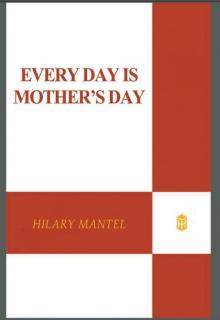 Every Day Is Mother's Day
Every Day Is Mother's Day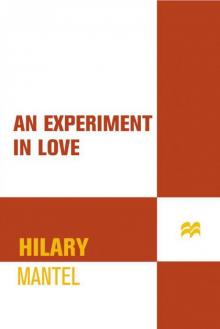 An Experiment in Love
An Experiment in Love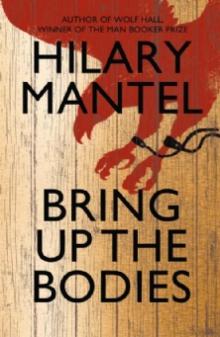 Wolf Hall
Wolf Hall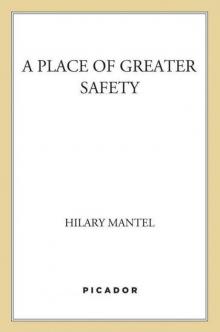 A Place of Greater Safety
A Place of Greater Safety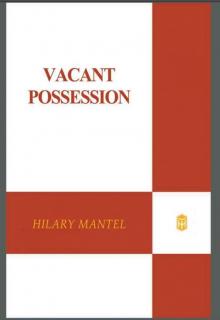 Vacant Possession
Vacant Possession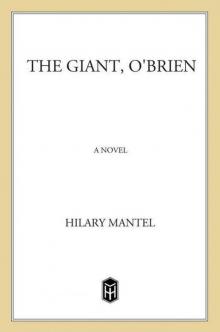 The Giant, O'Brien
The Giant, O'Brien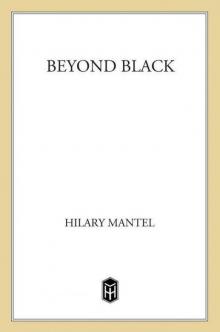 Beyond Black
Beyond Black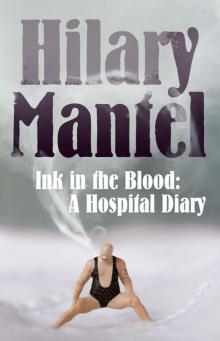 Ink in the Blood: A Hospital Diary
Ink in the Blood: A Hospital Diary The School of English
The School of English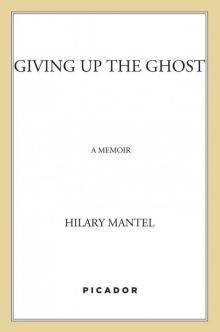 Giving Up the Ghost
Giving Up the Ghost The Mirror and the Light: 2020’s highly anticipated conclusion to the best selling, award winning Wolf Hall series (The Wolf Hall Trilogy, Book 3)
The Mirror and the Light: 2020’s highly anticipated conclusion to the best selling, award winning Wolf Hall series (The Wolf Hall Trilogy, Book 3)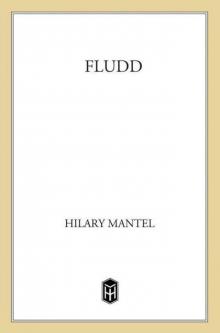 Fludd
Fludd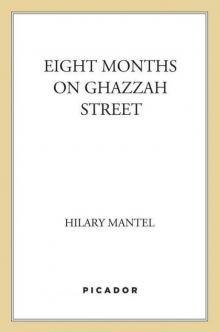 Eight Months on Ghazzah Street
Eight Months on Ghazzah Street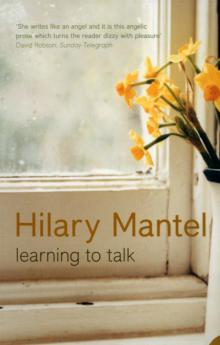 Learning to Talk
Learning to Talk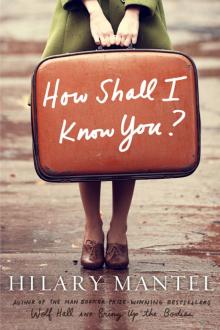 How Shall I Know You?: A Short Story
How Shall I Know You?: A Short Story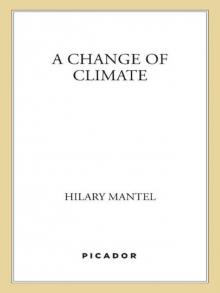 A Change of Climate
A Change of Climate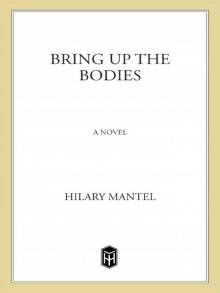 Bring Up the Bodies
Bring Up the Bodies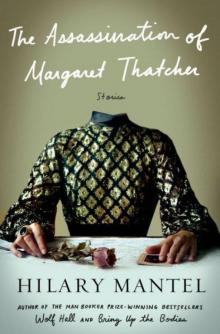 The Assassination of Margaret Thatcher: Stories
The Assassination of Margaret Thatcher: Stories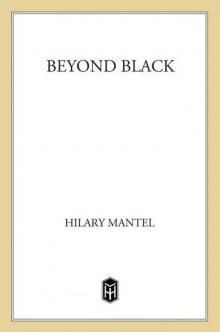 Beyond Black: A Novel
Beyond Black: A Novel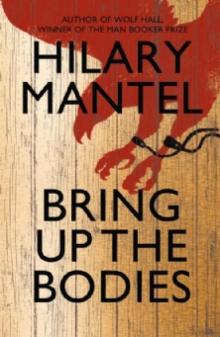 Wolf Hall: Bring Up the Bodies
Wolf Hall: Bring Up the Bodies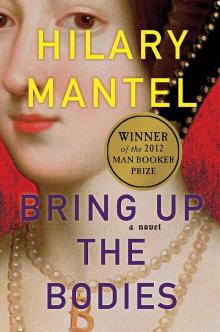 Bring Up the Bodies tct-2
Bring Up the Bodies tct-2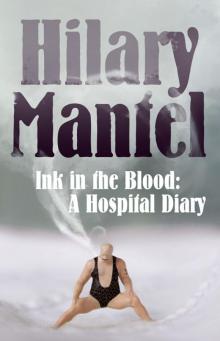 Ink in the Blood
Ink in the Blood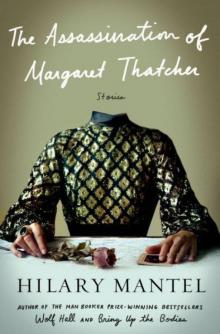 The Assassination of Margaret Thatcher
The Assassination of Margaret Thatcher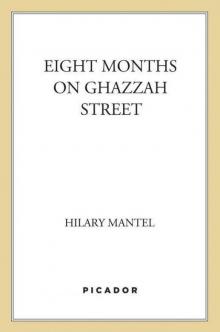 Eight Months on Ghazzah Street: A Novel
Eight Months on Ghazzah Street: A Novel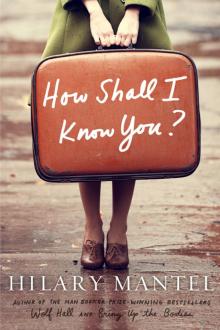 How Shall I Know You?
How Shall I Know You?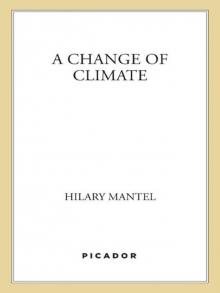 A Change of Climate: A Novel
A Change of Climate: A Novel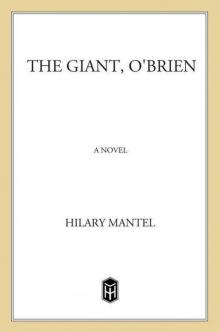 The Giant, O'Brien: A Novel
The Giant, O'Brien: A Novel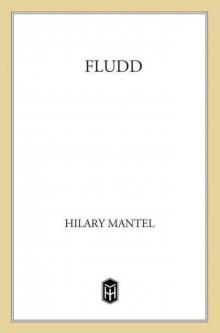 Fludd: A Novel
Fludd: A Novel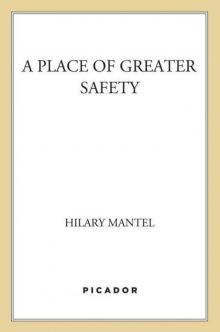 A Place of Greater Safety: A Novel
A Place of Greater Safety: A Novel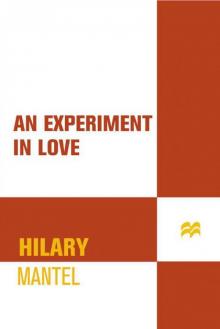 An Experiment in Love: A Novel
An Experiment in Love: A Novel